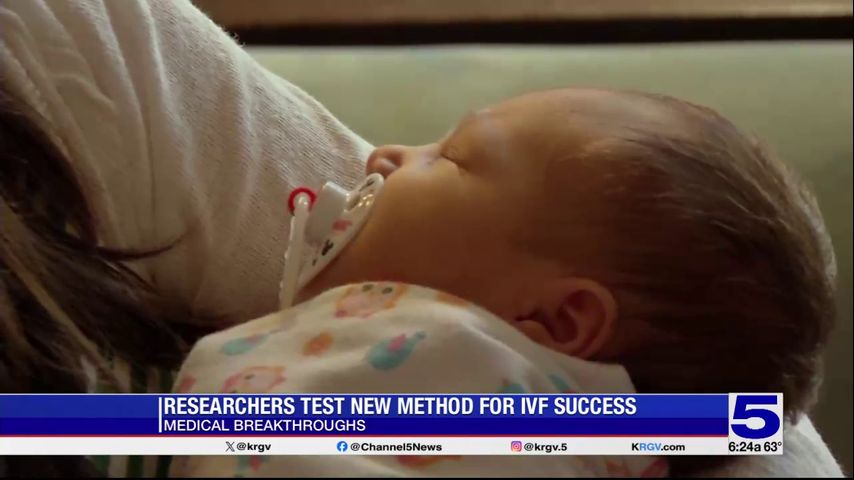Medical Breakthroughs: Researchers test new method for IVF success
Millions of couples in the United States struggle with infertility. Some of the reasons include age, health and environmental factors.
IVF treatments can be one way to help these couples.
More than 86,000 children born in 2021 were conceived with the help of in Vitro Fertilization, but the process is complex, expensive and the overall birth rate is only 20 to 40 percent in women under 40.
From sleep time to feeding time and all the times in-between, it's moments like these that are a dream come true for hundreds of thousands of new moms and dads each year.
But getting to this point can be a long journey for some couples.
"Since the birth of the first IVF baby in 1978, we've made great strides in the science of fertility care, especially in IVF, but I do think that it's often a misconception that this is going to solve all," University of California San Diego Health Reproductive Endocrinologist Irene Su said.
A major challenge in IVF is identifying which embryos have the best chance of a successful pregnancy.
"On average, people in the U.S. go through about two to three cycles of IVF," Su said.
Currently, embryos undergo genetic testing, which requires a biopsy and does not fully predict success.
A new method developed out of the UC San Diego School of Medicine works by detecting small particles of genetic material called ExRNA's that are left behind in the Petri dishes that the embryos are grown in.
Researchers used the data to train a machine learning model to predict the embryo's appearance, which predict success.
"The pattern of RNA varies between embryos that stop growing versus the embryos that continue to grow," Su said.
That will help doctors determine which ones will have the best chance to grow into beautiful babies.
Researchers emphasize that further research is needed to confirm whether their ExRNA based test can directly predict successful IVF outcomes, like live births.
While the test can accurately predict embryo morphology, a known indicator of IVF success, a direct link to positive outcomes must still be established.
Once validated, this test could streamline the IVF process, making it more efficient and less stressful for patients.





